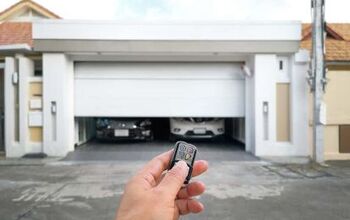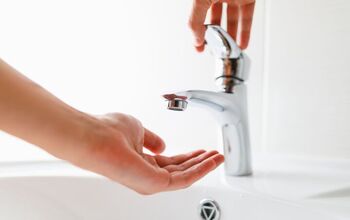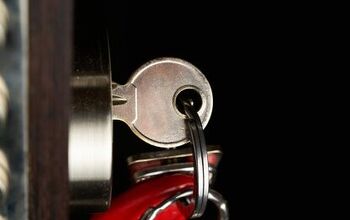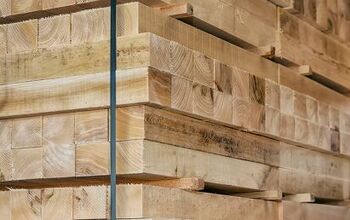What Happens If You Put Mixed Gas In a Pressure Washer?

Pressure washers are fabulous tools. They make short work of cleaning patios, driveways, house exteriors, outdoor furniture, fences, and many other items. Pressure washing is also an easy fix to costly alternatives such as painting or refinishing.
But mixing different gas types in your pressure washer exposes its engine to several potential problems. These issues include moisture-related degradation, carburetor clogs, and engine smoke. It’s even possible that your machine won’t start, forcing you to purchase replacement parts or a new pressure washer.
The good news is that mixing gas is avoidable. And even if you mix gas accidentally, there are fixes you can employ to keep the situation from getting worse.
Do You Need Powerwashing Services?
Get free, zero-commitment quotes from pro contractors near you.

All Pressure Washers Are Not Created Equal
An important fact to remember about pressure washers: each one is different. Therefore, they all have different needs when it comes to gas. Some pressure washers require normal gasoline, and then some models require an oil-and-gas mix.
So, before filling your pressure washer with any fuel, carefully read the instructions. The manual will provide you with the appropriate gas, oil, and mixing recommendations for your specific washer.
Mixing Types of Gas
As a general rule, mixing different gas types is not recommended, mostly due to the varying properties of different types of fuels. For example, adding large amounts of diesel to a pressure washer that uses unleaded gas will likely ruin the engine.
But, if you catch your mistake early and drain the fuel entirely, you can potentially salvage your pressure washer. After flushing and replacing the diesel with the correct gas, your engine should survive.
Mixing Oil and Gas
Some pressure washers feature 2-cycle (or two-stroke) engines. Unlike pressure washers featuring engines with separate tanks for oil and gas, 2-cycle engines require a specific mixture of both. Although levels vary from one machine to another, 50:1 (fifty-parts-gas to 1-part-oil) and 40:1 are common proportions.
2-cycle pressure washers typically feature a single port for both the gas and oil. Often, the cap covering the port will feature images of both a gas can and a fuel pump. Always read the owner’s manual to double-check.
How To Properly Mix Oil and Gas
Although it may be tempting to simply pour each substance directly into your pressure washer, this will likely create a faulty fuel mix. As a result, the improper blend can make your washer run poorly.
The correct way to mix your fuel is by pouring the oil into a gas can first. Then add gasoline to the can. This method will combine the two fuels properly and better power your pressure washer.
Using Gas That Contains Ethanol
The vast majority of gas in the U.S. has some degree of ethanol. E10, the type of ethanol found in regular, unleaded gas, is usually acceptable for most gas-powered pressure washers.
However, ethanol comes with potentially corrosive drawbacks, like the fact that it absorbs water. Over time, ethanol can pull water into your pressure washer’s fuel tank.
This added water creates moisture and corrodes your washer’s fuel system. If left unchecked, the moisture can cause irreparable damage to your engine. That’s right; even your pressure washer’s engine can get “the vapors!”
The Perils of Old Gas
Although it may take a few weeks, all types of gas will eventually age and begin to break down. This process is known as oxidation. When oxidation occurs, this “stale” or “old” gas can clog the carburetor.
Like the one in your car, large engines are less vulnerable to the effects of “old” gas. But when gas is left in your pressure washer’s comparatively small engine, adverse effects can occur quickly.
Over time, the oxidized gas will block the lines in your pressure washer’s carburetor. The results? When you give your pull cord a yank, the varnish may cause the engine and machine to smoke. Alternatively, your machine won’t start at all.
Empty Out Old Gas Before Adding New Gas
If your first instinct is to add new gas to your pressure washer, you’re not alone. But, by now, your problem has extended past the gas tank and into the now- clogged-carburetor. In this situation, adding new gas to your pressure washer won’t solve your predicament.
Instead, look to the fuel line, the fuel tank, and the carburetor bowl. Drain all three and liberally flush each one. While pressure washer models vary, this process simply requires following your machine’s instruction manual.
Solutions To Avoid Ethanol-Related Corrosion and Clogs from Old Gas
If you have stale gas in your pressure washer, there are several fuel stabilizers on the market. Ethanol Shield Fuel Stabilizer, Sta-Bil 360, and similar products help counter the effects of ethanol and water in your fuel system.
Consistent use of such fuel stabilizers has proven to successfully battle clogs found in carburetors as well. In some cases, using a fuel stabilizer can extend the gas’s life for up to 12 months. However, it’s always best to drain the tank if you won’t use your washer for a while.
What’s the Best Type of Gas for a Pressure Washer?
While there’s no clear consensus on which gas is best, some pressure washer sellers recommend splurging on premium. But first, make sure it’s an ethanol-free premium.
Ethanol-free premium will likely be more challenging to find than the alternatives. However, you won’t endanger your pressure washer with ethanol’s adverse effects. Also available are canned fuel products, which offer two-in-one mixtures of ethanol-free gas and a fuel stabilizer.
Some Gas Pumping Times Are Better for Your Pressure Washer Than Others
There is some disagreement over the best choice of gas for your pressure washer. However, most people agree there is a best time to get your gas.
It’s essential to know the best time to load up and the worst time to load up on gas. Since your machine employs a small engine, you should avoid purchasing gas when the tanker truck is servicing your gas station.
When trucks put new gas into the pumps, it creates pressure. This pressure stirs up all of the sediments at the bottom of a gas station’s tanks. Subsequently, this sediment, like stale gas, can also clog your carburetor. So when you see the service truck, steer clear of the pumps!
Do You Need Powerwashing Services?
Get free, zero-commitment quotes from pro contractors near you.

Related Questions
Is there an alternative to gas-powered pressure washers?
Yes! Electric pressure washers are widely available. And based on the name alone, you’ll never have to worry about adding the right gas or draining the fuel before storage.Additionally, electric washers are quieter and lighter. But they are significantly less powerful. And unlike gas-powered pressure washers, you’ll need to use a power cord, which will limit your mobility while you’re cleaning. Also, no matter how well you maintain it, an electric pressure washer will expire long before its gas-powered counterpart.
What do I do with old gas after I’ve drained it back into a gas can?
If you drive a vehicle that runs on similar gas, you may want to pour it into your car’s tank. It’s unlikely that you’ll damage the larger engine, and you’ll save a couple of bucks. Professional pressure washers confess to doing this all the time!
How long can I leave gas in a pressure washer before it starts to go bad?
For small engines like the one in your pressure washer, it’s good practice not to let gas sit for long in the tank. Most professionals recommend waiting no more than thirty days to replace the fuel. Therefore, it’s a good rule of thumb to create a monthly reminder on your calendar. This reminder not only helps you maintain your washer better but can extend its life expectancy.Pressure washing is a wonderful way to clean your home, patio, sidewalk, and other elements quickly. Remember to mix any gas in a separate container first, and keep your gas drained if you aren’t using the machine regularly. Otherwise, you might be feeling the pressure of having a pressure washer that needs repair!

Stacy Randall is a wife, mother, and freelance writer from NOLA that has always had a love for DIY projects, home organization, and making spaces beautiful. Together with her husband, she has been spending the last several years lovingly renovating her grandparent's former home, making it their own and learning a lot about life along the way.
More by Stacy Randall









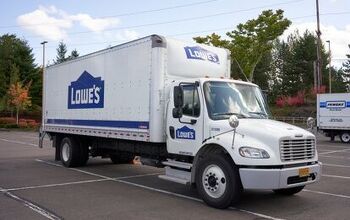
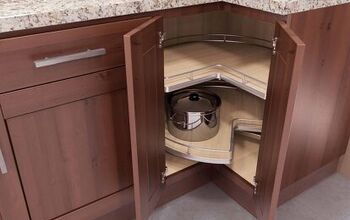
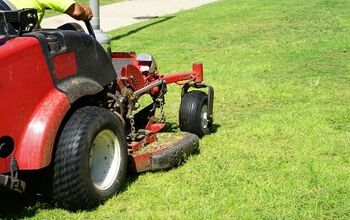
![10 Best Electric Pressure Washers – [2022 Reviews & Guide]](https://cdn-fastly.upgradedhome.com/media/2023/07/31/9070600/10-best-electric-pressure-washers-2022-reviews-guide.jpg?size=350x220)

